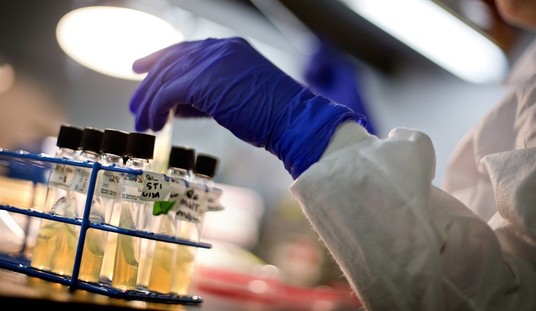=========
=========
Promoted from the diaries by streiff. Promotion does not imply endorsement.
=========
=========
Slate “magazine” — it’s actually an “ezine” — likes to be edgy, to keep up its readership. It has accomplished one thing: it has been making money, something not every online publication has succeeded in doing. Today’s main article is about a juror saying that he regretted his part in convicting an accomplice to murder of murder, as though the accomplice somehow wasn’t guilty of anything. And this latest outrage article just continues the edginess:
Is Pedophilia a Crime or an Illness?
We’ve never quite known whether child molesters should be treated as sick people or punished as criminals.
By Dahlia Lithwick | March 3, 2019 | 7:30 PM EST
Stop right there. The headline is written as though it is an either/or choice, as opposed to pedophila being both a crime and an illness. But it is the subtitle which got to me: yes, we have quite known whether child molester should be treated as sick people or punished as criminals. If they act on their impulses, yes, they should be punished as criminals, locked away for the rest of their miserable lives. Once they commit that crime, I do not care whether they are sick of not; I do care about the crime they committed and the victims they have harmed.
Slate was republishing what was originally a 2004 article, due to HBO’s release of the film “Leaving Neverland,” about two men who claimed to have been molested as boys by Michael Jackson.
Again, and for all the wrong reasons, we can’t take our eyes off Michael Jackson. Whether or not the allegations are substantiated, the question is in the air: Is pedophilia a disease to be treated, or a crime to be punished? Are people who seduce minors sick or evil? Our current legal and medical systems blur both views. We call for the most draconian punishments (life imprisonment, castration, permanent exile) precisely because we view these acts as morally heinous, yet also driven by uncontrollable biological urges.
If sex with children is truly the product of freely made moral choices, then we should deal with it through the criminal justice system. But if it is a genetically over-determined impulse, an uncontrollable urge nestled in our DNA, then punishing pedophiles must be morally wrong. As science—and culture—increasingly medicalizes bad behavior, finding a neurological component to everything from alcoholism to youth violence, we run the parallel risks of either absolving everyone for everything, or punishing “criminals” who are no guiltier than cancer patients.
Say what?
Alcoholism is also considered a disease; should we, by Mrs Fein’s¹ logic, not punish drunk drivers who are alcoholics simply because they have an illness they cannot control?
Mrs Fein did attempt some nuance in her article, noting the differences between alcoholics and pedophiles, one of them being that not every — or even most — incidents of drunk driving results in a victim, given that even a drunk driver often makes it to his destination without an accident or hurting anyone, while every instance of pedophilic abuse results in an innocent victim. She noted that researchers still have no idea if there is a biological ’cause’ of pedophilia.
If the repercussions of the act argue for holding the perpetrators morally responsible, regardless of their level of agency, then the seriousness of the punishment pulls in the other direction. Holding alcoholics morally responsible for their actions has predominantly insurance and employment consequences. Holding a child molester responsible for his actions means a lifetime of incarceration or of monitoring, unemployment, and shaming. Offender registries are certainly an alternative to other forms of vigilantism, but the practical effect is a whole subclass of offenders with nowhere to live or work. If science someday proves us wrong, and pedophiles are wholly victims of their own biology, we will have victimized them twice and called it justice.
Sorry, but that last sentence impresses me not in the slightest. If science someday proves that a pyromaniac is wholly the ‘victim’ of a particular mutated gene, it should not mean that the people killed when he torched a building are any less dead, or that he should not be punished.
Mrs Fein noted that the National Institute of mental Health has estimated that the average offender will have molested about 150 victims before he is eventually caught, and that the recidivism rate for sex offenders is quite high, around 50% over a 25-year period.² This, in her article, at least partially justifies the incapacitation rationale of incarceration. But, then she veers off into the weeds again:
The appeal of the crime-punishment model is that it can tailor the punishment to the crime. A one-time molester is as sick as a serial predator under the disease theory. But the attraction of the disease model is that it assumes both that there is a cure, and that the perpetrators wish to be cured. There is a danger to assuming the latter is true. It’s been the basis for the states who adopted mandatory civil-commitment laws, following the Supreme Court’s holding in 1997’s Kansas v. Hendricks that the most dangerous child molesters can be held involuntarily, after their sentences are served, so long as they’re receiving treatment. The problem is that often the treatment they receive is not sufficient or effective. But since this is “treatment” and not “punishment” neither the public nor the Constitution is offended, says the court. The danger of the “treatment” model is the danger posed to a society that has sedated and medicated an entire population into a law-abiding stupor. But the crime/punishment model is similarly hopeless. The promise of an ever-growing number of pedophiles either languishing in jails we cannot afford, or using jails for sleepovers between crimes is, quite possibly, a worse nightmare than the “treatment” option. Perhaps the best solution to a problem with hybrid causation is a hybrid solution: Studies generally show that treatment is better than no treatment, and it’s hardly coddling criminals to institute a program of close supervision, drug therapy, and counseling. If science is proved even 10 percent right and nature has some hand in creating a pedophile, lifelong imprisonment solves only one immediate problem—warehousing dangerous citizens. But it raises a more immediate problem—we may be punishing sick people who could have been helped.
One of us doesn’t think that it matters whether we might be punishing sick people who might otherwise have been helped; one of us thinks that the crime is so serious that the punishment for it should be life imprisonment without the possibility of parole, regardless of whether the offender could eventually be cured.
The punishment should fit the crime. The drunk driver who gets caught before having an accident is punished differently than the one who has an accident which damages someone else’s property, and again differently from the one who causes an accident in which someone is injured of killed. But the pedophile who offends has committed a crime which merits lifetime incarceration regardless of how seriously he has injured his victim, how seriously impacted his victim’s future life may be.³
At a certain point, nuance becomes an excuse for inaction, and an obscuring of the bright line between crime and not crime. I could argue, if I chose, that, as the repugnant Cardinal George Pell’s attorney did, there should be leniency because the offense was “no more than a plain vanilla sexual penetration case,” as though that should somehow be treated more lightly than forcible rape at knife point. That is not an argument I would ever choose to make; rather, even “a plain vanilla sexual penetration case” ought to be a lifetime incarceration offense.
Sadly, that isn’t the law today. The prosecutors in the Jerry Sandusky case felt the need to come up with so many victims that Mr Sandusky could be charged with 48 counts in order to secure what amounted to a life sentence for the rapist.4 This being the case, Mrs Fein’s arguments have some force: child molesters are often released due to lenient sentencing, and their return to the community is going to require treatment. But Mrs Fein’s arguments should never be taken to justify even more lenient sentencing than we already have.
Unaddressed in her article, and in most such stories, is that fact that there are pedophiles out there who have managed not to act on their urges. As serious as pedophilia is, absent an actual crime being committed, they cannot be punished; the Constitution prohibits anyone being deprived of life or liberty without due process of law. These are the people we have to treat, those who cannot be locked up, to try to help them before they rape their first victim. Had Mrs Fein addressed that, her article would have had some real merit. Without it, it was essentially pointless.
______________________________________________
¹ – Dahlia Lithwick is married to Aaron Fein.
² – This statistic only includes those who are actually caught in reoffense; if the average pedophile molests 150 children before being caught, we must assume that they have been pretty good at committing their crimes without being detected. That being the case, it isn’t difficult to imagine that at least some of the 50% who supposedly do not reoffend actually did so, and simply managed to avoid getting caught again.
³ – There really are degrees here: some victims may not be badly injured, while others can be deeply scarred for life, and still others suffering disabling physical damage.
4 – Mr Sandusky, who was 68 years old upon his conviction, was sentenced to 30 to 60 years in prison, making him eligible for parole at age 98. On appeal, the Pennsylvania Supreme Court said that the lower court erred by fixing a minimum sentence, and ordered a resentencing hearing for the rapist. As of this writing, Mr Sandusky has not been resentenced.
_____________________________________________
If you found this article interesting, amusing or outrageous, please visit my Red State story archive.
My personal website, The First Street Journal, includes articles not necessarily in Red State’s paradigm.
You can follow me on Twitter.














Join the conversation as a VIP Member